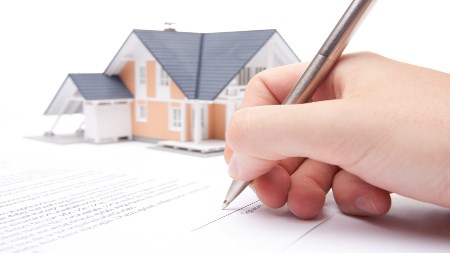Your crash course on buying a house including what the Deeds Office does and how the process of registering a property works.
What do I need to buy a house?
There are a number of things you need to do to ensure the process of buying a house goes as smooth as possible. To start:
- Do an online search and visit houses on show
- Do an affordability calculation
- Discuss your offer with the real estate agent
- Have a pre-approval on a mortgage
- Have your down payment ready
- Get a home inspector to assess the condition on the house
- Sign the purchase agreement
Before buying a home, there are other essential bits of information to familiarise yourself with. One of these is the registration process and exactly what will be required of you. To understand this process, it is important to know exactly what the Deeds Office does. The Deeds Office is a government department responsible for the registration, management and maintenance of the property registry of South Africa. It is part of the Department of Rural Development and Land Reform.
The next step is to become familiar with the registration process that takes place at the Deeds Office. Here’s how it works:
Firstly, the conveyancer lodges your title deed and other documents in the Deeds Office for registration. These documents will be individually captured on the system. If there is a bond, the conveyancer dealing with the bond will lodge the bond documents with the Deeds Office at the same time as the transfer documents. The transfer, bond and cancellation documents must be lodged in the Deeds Office at the same time to ensure simultaneous registration. If different conveyancers are dealing with registering the purchaser’s bond and cancelling the seller’s bond, then they will need to collaborate.
Next, the Deeds Office examiners go through the documentation that has been submitted, and make sure that it complies with the relevant laws and legislation.
The examiners then inform the conveyancer that the deeds are ready to be registered.
Registration takes place with the conveyancer and Registrar of Deeds present. The transfer of the property is then registered in the purchaser’s name. If there is a bond, it is registered at the same time.
Upon registration, the purchaser becomes the lawful owner of the property. The title deed that reflects this ownership is given to the conveyancer by the deeds office after the registration. Unless a bond has been registered as well, in which case the title deed is given to the bond holder.
The time taken to register a property at the Deeds Office depends on various factors and a number of parties. On average, registering a property transfer takes six to eight weeks, although unforeseen difficulties can cause the period to be extended.
If you intend to move into a new home this year, you can find a home that suits your lifestyle right here on Private Property. Kickstart your home buying journey by checking out hundreds of great houses to buy and on show this week.




